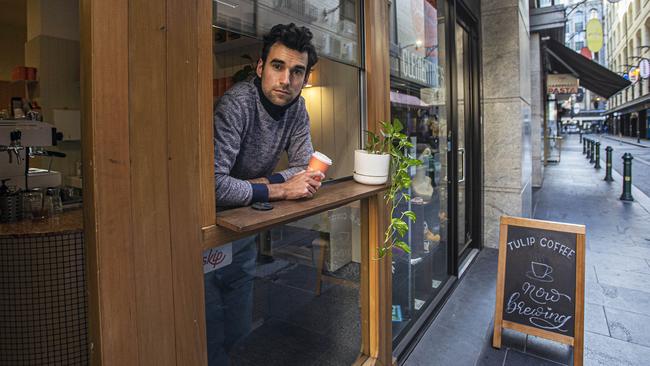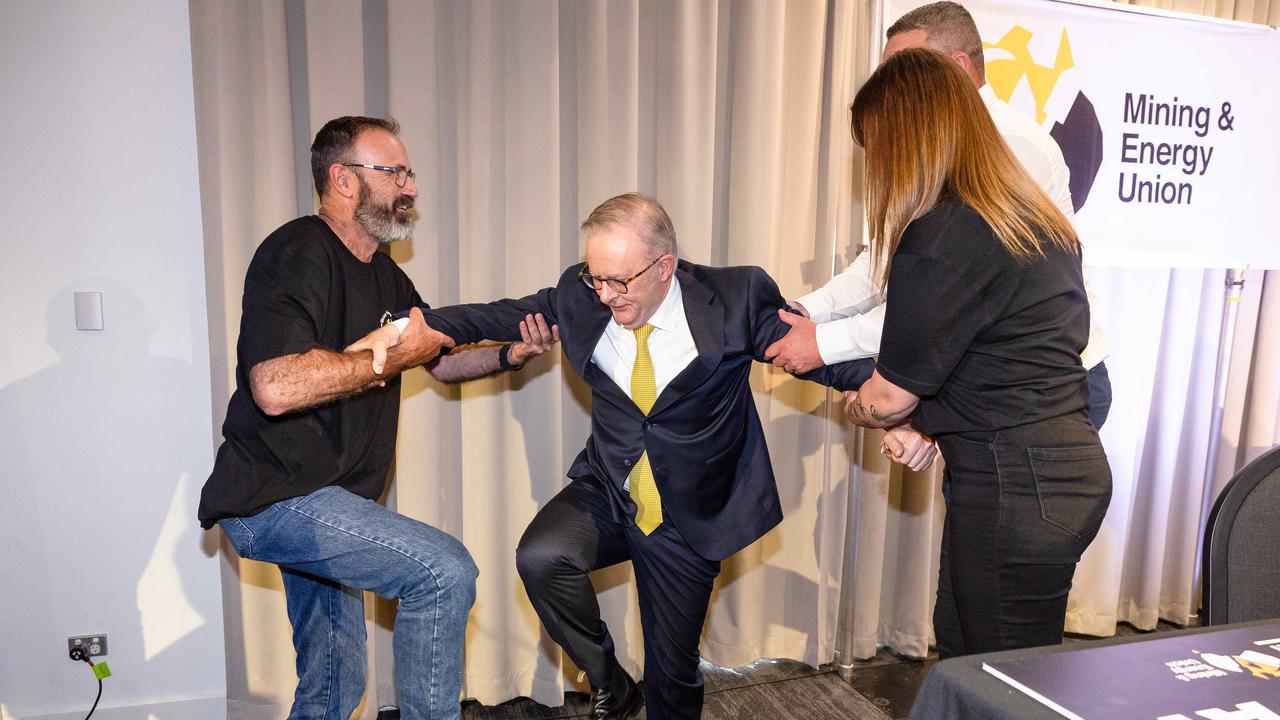Coronavirus: The $23bn blow that’ll break Melbourne’s heart
The coronavirus will deliver a $23bn hit to Melbourne’s CBD and inner suburbs in 2020, wiping out 22,000 jobs and causing the city’s economy to contract by almost a quarter.

The coronavirus will deliver a $23bn hit to Melbourne’s CBD and inner suburbs this year, wiping out 22,000 jobs and causing the city’s economy to contract by almost a quarter, new modelling forecasts.
In the next five years, Victoria’s capital could lose up to $110bn and 79,000 jobs compared with pre-pandemic projections, according to modelling by PricewaterhouseCoopers commissioned by Melbourne City Council.
Taking into account the stage-four lockdown and assuming public health restrictions remain in 2021, the report forecasts the City of Melbourne’s economy will contract by $23.5bn, or 22 per cent, in 2020, compared with 2019 projections, as well as shedding 15 per cent of all jobs.
With Melbourne to remain under one of the most severe lockdowns in the world until at least October 26, Lord Mayor Sally Capp on Thursday renewed calls for additional financial assistance.
“We will need billions of dollars in investment from commonwealth and state governments to support businesses and deliver infrastructure stimulus as a platform for recovery for many years to come,” she said.
Melbourne’s gross local product reached a record $104bn in 2019, representing about a quarter of the Victorian economy.
The report found accommodation and food services would be worst hit by the downturn, losing nearly 23,000 jobs in 2020, followed by financial and insurance services, with 8000 jobs lost.
Tulip Coffee owner Sam Hall-Haydon said his takings were down around 95 per cent and he hadn’t paid rent on the premises in Degraves St since March. With staff on JobKeeper payments, Tulip is still serving takeaway to the few customers who dribble into the CBD.
“It’s hard, isn’t it, because you once had a business … worth something and a livelihood and that’s I guess taken away from you, through no fault of anyone’s, really,” said Mr Hall-Haydon. He said Melbourne businesses needed support in part to ensure the character of the city — which attracted millions of visitors from around the world and the nation — survived the pandemic.
“I guess we need support now so we can have all of those good cafes, restaurants and performing arts still here when tourists are allowed to come back,” he said.
“Otherwise I feel like it won’t be the same city as we once had.”
Melbourne’s CBD had a million visitors a day last year but the pandemic has seen foot traffic fall nearly 90 per cent. PwC modelling found the professional scientific and technical services sector will shed 7400 jobs, 6800 will be lost in education and training, 5300 will be lost in arts and recreation while retail will lose 2300.
Australian Retailers Association chief executive Paul Zahra said restrictions had hit the city’s CBD like a sledgehammer, and modelling reflected the impact of the prolonged lockdown.



To join the conversation, please log in. Don't have an account? Register
Join the conversation, you are commenting as Logout